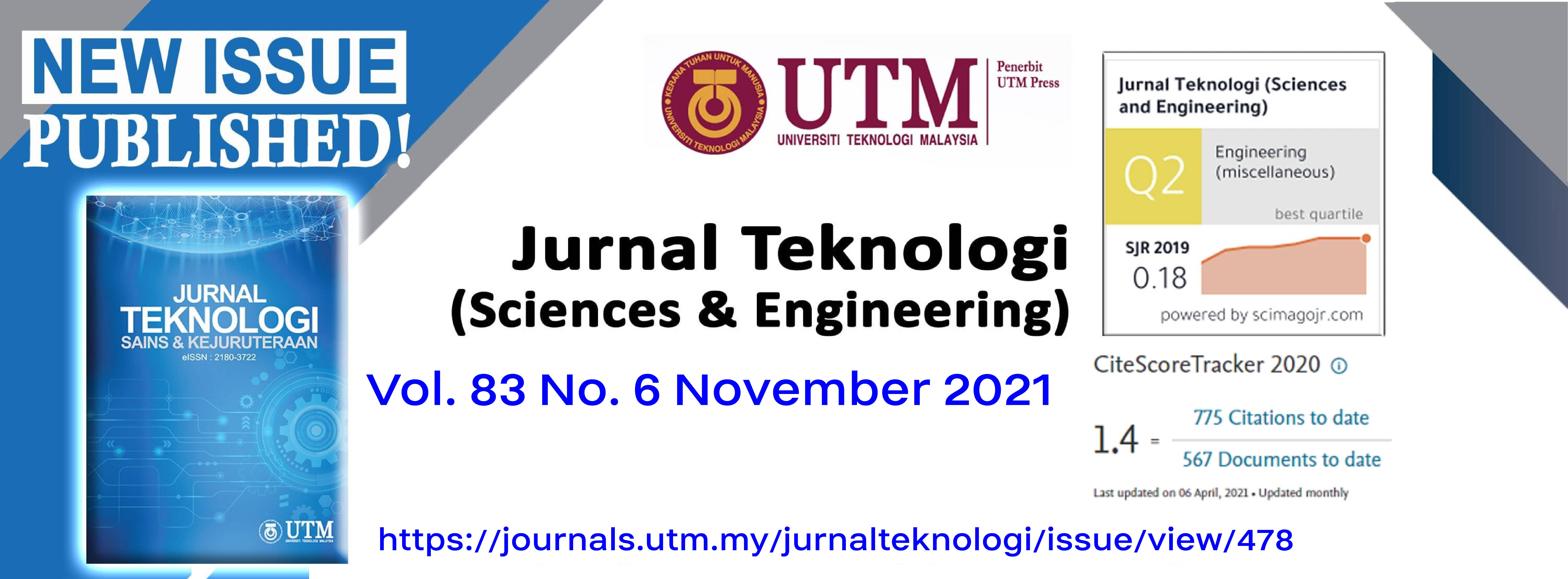OPTIMAL ACCURACY PERFORMANCE IN MUSIC-BASED EEG SIGNAL USING MATTHEW CORRELATION COEFFICIENT ADVANCED (MCCA)
DOI:
https://doi.org/10.11113/jurnalteknologi.v83.16750Keywords:
EEG, arousal index, valence index, accuracy, MCC and MCCAAbstract
The connection between music and human are very synonyms because music could reduce stress. The state of stress could be measured using EEG signal, an electroencephalogram (EEG) measurement which contains an arousal and valence index value. In previous studies, it is found that the Matthew Correlation Coefficient (MCC) performance accuracy is of 85±5%. The arousal indicates strong emotion, and valence indicates positive and negative degree of emotion. Arousal and valence values could be used to measure the accuracy performance. This research focuses on the enhance MCC parameter equation based on arousal and valence values to perform the maximum accuracy percentage in the frequency domain and time-frequency domain analysis. Twenty-one features were used to improve the significance of feature extraction results and the investigated arousal and valence value. The substantial feature extraction involved alpha, beta, delta and theta frequency bands in measuring the arousal and valence index formula. Based on the results, the arousal and valance index is accepted to be applied as parameters in the MCC equations. However, in certain cases, the improvement of the MCC parameter is required to achieve a high accuracy percentage and this research proposed Matthew correlation coefficient advanced (MCCA) in order to improve the performance result by using a six sigma method. In conclusion, the MCCA equation is established to enhance the existing MCC parameter to improve the accuracy percentage up to 99.9% for the arousal and valence index.
Downloads
Published
Issue
Section
License
Copyright of articles that appear in Jurnal Teknologi belongs exclusively to Penerbit Universiti Teknologi Malaysia (Penerbit UTM Press). This copyright covers the rights to reproduce the article, including reprints, electronic reproductions, or any other reproductions of similar nature.
















